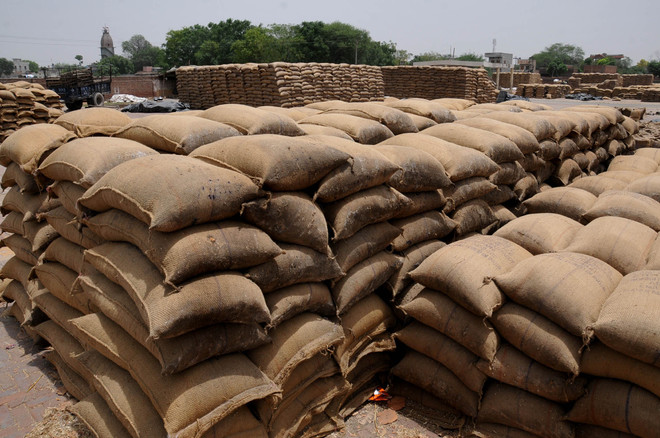Expanding grain storage capacity is essential
The plan to enhance grain storage capacity in the country by setting up more facilities all over the country is welcome as it would support both agriculture and infrastructure development. Prime Minister Narendra Modi launched a pilot project last week with the ambitious aim of setting up the world’s largest grain storage facility in the co-operative sector.
The project, which aims to add a capacity of 70 million tonnes of food grains, is expected to be completed over the next five years. The pilot scheme is being implemented in 11 states with the help of Primary Agricultural Credit Societies (PACS). The plan is estimated to cost about Rs 1.25 lakh crore. The storage is at present done by the Food Corporation of India (FCI), the Central Warehousing Corporation, and other government agencies.
The enhancement of storage facility is essential in many respects. The total food grain production in India is about 311 million tonnes (mt), but the storage capacity is only 145 mt. Many countries have surplus storage capacity while India, which is among the top grain-producing countries, is way behind its storage needs. It is estimated that about 22 per cent of the food grain output in the country is going waste. This huge loss can be prevented if there are adequate storage facilities.
At present, public procurement is limited to rice and wheat. One big constraint in increasing the procurement of agricultural crops is the lack of storage facilities. It will be possible to increase and diversify procurement with enhanced storage capacity. The plan is also intended to help farmers by providing storage facility so that they are not forced to sell their produce immediately after harvest. There will be a reduction in transportation costs, too. Adequate storage facilities can help to reduce volatility in the prices of food grains and to ensure a stable price regime and food security. Bigger storage facilities can benefit both farmers and consumers.
The government is planning to implement the plan through primary co-operatives. There are 65,000 agricultural co-operative societies in the country.
The government has plans to set up two lakh PACS and dairy and fisheries co-operatives. Some existing schemes relating to agricultural infrastructure and marketing will be combined and harnessed to enable the co-operatives which are part of the project to avail subsidies and interest subvention benefits for undertaking infrastructure development. The PACS will set up godowns, providing farmers the ability to store produce and access bridge financing for subsequent crop cycles. A godown of a capacity of 2,000 tonnes is proposed to be constructed in every block. The scheme is also expected to increase employment opportunities.
This article has been republished from The Deccan Herald.

